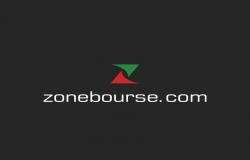Use cases, selection criteria and popular sectors: three investors from Serena, Alven and Balderton explain what attracts their attention in AI start-ups.
ChatGPT has been emulated. From now on, the vast majority of French tech companies are specialists in artificial intelligence. An exaggerated statement? However, it is the French start-ups that present themselves as such. At least in front of the investment funds that they are trying to attract to raise funds. “80% of them assure us that they are doing AI,” confides Victor Charpentier, partner at Alven. A proportion also observed at the Serena investment fund: “We see 3,500 entrepreneurs pass through each year. For two years, at least 80% of them have included the term artificial intelligence in their pitch deck,” confirms Sébastien Le Roy, partner.
“We systematically ask them for a demo of the product”
Among all these AI “specialists”, we must distinguish those who have really developed expertise from those who are riding the trend. To do this, Zoé Mohl, in charge of French investments at the Balderton fund (which includes AI start-ups such as Convergence AI, Photoroom, Wayve, Deepset) in its portfolio, has developed a specific ritual for intelligence companies. artificial: “We systematically ask them for a demo of their product”. No doubt a way to carry out a first skimming. After this step, Balderton questions the founders “on their visions and beliefs on the future of artificial intelligence to find out how they intend to adapt their positioning to changes in their market” because it is a “sector in full transformation “.
On the side of Alven (which has invested in Attention.tech, Creative Fabrica and Dataiku), investments are focused on two categories of start-ups: “Companies that create use cases based on business models “already existing AI and those which are developing infrastructures making it possible to make the link between these models and these use cases”, indicates Victor Charpentier. A third category, however, is set aside: “We look less at start-ups that create AI models (like for example Mistral, editor’s note). They do not correspond to our investment strategy because they require significant financing (Alven is more of an early stage specialist, editor’s note).
Abandoned model building
Same observation at Serena: “Building AI models is expensive and takes time. Only a few companies succeed in it,” explains Sébastien Le Roy. “We especially prefer to look at concrete use cases that can be applied to a particular field. We have seen a wave of start-ups positioned on easy use cases with productivity support tools. From now on, we are paying more attention to those that develop more complex use cases.”
But that is not enough. Other criteria are imperative for this fund which has invested in Accenta, Lifen and Dataiku: “We ask ourselves three questions before investing in an AI start-up. Does it have a large volume of unstructured data? Is it operating in a sector where there are still many tasks that can be automated? Is it operating in a low-velocity market?That is to say a market in which a start-up has a competitive advantage thanks to its speed of execution, editor’s note)”.
According to Sébastien Le Roy, “AI applied to health and the manufacturing industry” are among the areas that can meet these three criteria. Zoé Mohl, for her part, favors many sectors: “We look at AI in both BtoB and BtoC. We are interested in machine learning, video and audio tools because for the moment no company does not truly dominate this market, in specialized verticals such as pharmacy or material sciences. What about chatbots? “The service must be unique because many players have already developed it,” concludes Zoé Mohl.






